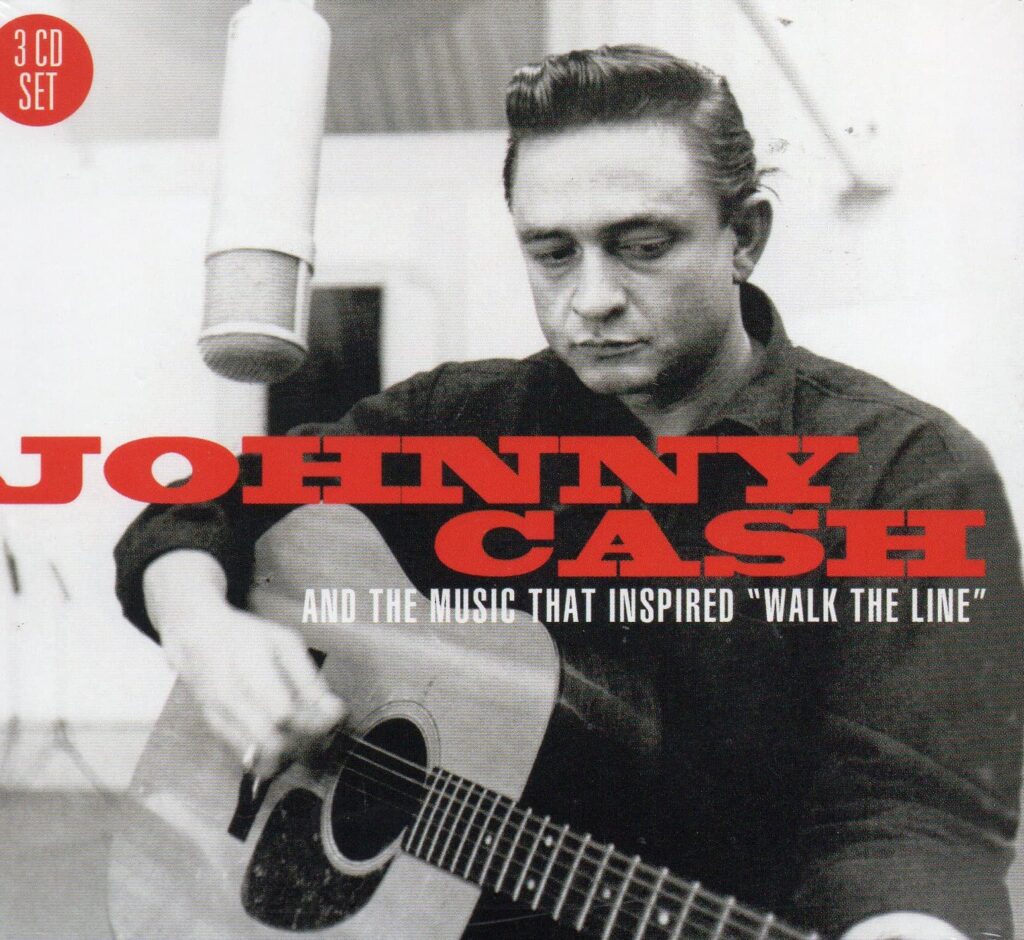
A Promise Etched in Steel: The Enduring Devotion of “I Walk the Line”
The ultimate pledge of unwavering devotion and self-control, sung by a man whose life would become a beautiful contradiction.
For those of us who came of age with the golden tones of Sun Records and the raw, resonant rumble of the Man in Black, few songs evoke a deeper sense of nostalgia than “I Walk the Line” by Johnny Cash. Released in May 1956, this track wasn’t just a hit; it was a mission statement, a crossover phenomenon, and the definitive sound of early rockabilly country. At its peak that summer, it held the top spot on the U.S. Country Juke Box charts for six consecutive weeks and famously crossed over to the pop charts, hitting Number 17 on the Billboard “Best Sellers in Stores” chart, making Cash a star far beyond the Grand Ole Opry.
What elevates “I Walk the Line” beyond a simple love song is the deeply personal and often turbulent story behind it. Cash penned the song in 1956, backstage in Gladewater, Texas, newly married to his first wife, Vivian Liberto. As he later recounted, the lyrics poured out of him in just 20 minutes, intended as a “pledge of devotion” to her while he was on the road, surrounded by the temptations that came with sudden fame. The title itself, a simple but powerful metaphor for marital fidelity, was suggested by his labelmate and tourmate, Carl Perkins.
The musical DNA of the song is just as fascinating. The distinctive, almost haunting chord progression was inspired by a strange sound Cash heard while playing back a recording on his tape recorder during his Air Force days in Germany. He later realized the tape was running backward, creating an eerie, organ-like drone that he incorporated into the song’s signature sound. The famous “boom-chicka-boom” or “freight train” rhythm, created by Luther Perkins’ simplistic yet driving guitar work and Marshall Grant’s bass, gives the track an unstoppable momentum—a perfect sonic analog for a man determined to stay on the straight and narrow path. You can hear this distinct rhythm, along with Cash’s subtle, pitch-setting hum before each verse, which was necessary because the song modulates, or changes key, five different times. It was a technical marvel disguised as a simple country tune.
But the real emotional weight of “I Walk the Line” comes from its layered meaning. On the surface, it is a straightforward promise to a wife: “Because you’re mine, I walk the line.” It’s about accountability, integrity, and resisting the myriad vices that seek to pull a touring musician off course. Yet, for an older listener who knows the full arc of Johnny Cash’s life—the addiction, the arrests, and the eventual, profound love with June Carter Cash—the song takes on an almost tragic resonance. It becomes a testament to the struggle for integrity, not merely its achievement. It’s the sound of a man battling his own darkness, constantly renewing a vow that he desperately wants to keep.
His former wife, Vivian Liberto, even titled her memoir I Walked the Line, a poignant nod to the song that was both a dedication to her and a constant reminder of the fidelity he often wrestled with. The raw honesty in Cash’s baritone, a voice often described as one from “the middle of the Earth,” is what makes the song endure. It’s not a celebration of perfection; it’s the beautiful, rugged sound of an imperfect man trying his best to be good for the woman he loves, forever walking that razor’s edge. It reminds us that devotion is a choice, made anew each day, and that the greatest lines we walk are the ones we draw for ourselves.